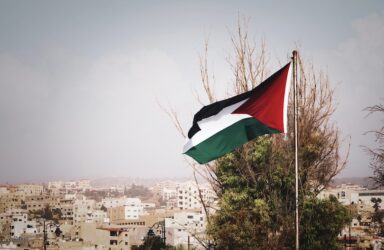Iran’s Nuclear Programme and the Stability of the Middle East
A nuclear-armed Iran will inevitably recalibrate the Middle Eastern strategic order. But what are the likely impacts for stability?
Pierre Bourdieu – Challenging Symbolic Violence and the Naturalisation of Power Relations
For Bourdieu, ‘The only way to bring about organisational change that does not entail merely replacing one modality of domination with another is to address specifically and to undo the mechanisms of dehistoricisation and universalisation – “always and everywhere has it been this way” – whereby arbitrary workings of power are enabled to continue.’ (Emirbayer and Johnson, forthcoming; 47-8)
The Primacy of Structural Violence in Sub-Saharan Africa
1946-2002 saw 47 civil wars in sub–Saharan Africa. While structural violence plays its role, there are other factors to consider.
21st Century Threats: Non State Actors, Participatory Democracy and Social Rights
The Americas are menaced by the emergence of a reactionary bloc of states & the rise of non-state actors that threaten to plunge the region into chaos.
Libya: The End of Intervention
Without Western responsibility for the outcome of the intervention in Libya and without any transformative promise, Western powers were strengthened morally and politically through their actions, whereas in Bosnia, Kosovo, Afghanistan and Iraq, they were humbled and often humiliated.
Who in Latin America benefits and loses from the rise of China?
The People’s Republic of China has emerged as an important global actor in the twenty-first century but who has benefitted, politically and economically, from Beijing’s growing presence in Latin America and how have Sino-Latin American relations developed since Chinese President Hu Jintao’s first diplomatic visit to the region in 2004?
Precise Definitions of Poverty: The Pros and Cons in Latin American Poverty Reduction
The way policy makers define poverty dictates the types of strategies that they use for alleviation, and their success. In Latin America numerous definitions have been employed, the current favourite being the profiling approach. This essay examines the various definitions of poverty on offer to Latin America, and the problems associated with each of them.
The OSCE and Peace in the Post-socialist Area
To consider the Organisation for Security and Cooperation in Europe’s role in fostering peace in the post socialist area, this essay will examine the conflicts in Moldova and Chechnya. It will argue that the OSCE has not yet been successful, but that this is largely because there has been no established peace to foster. Any progress is going to take time due to the complexities involved.
Critically assess the decision to go to war against Iraq in 2003
The decision for the United States and Britain to go to war with Iraq in 2003 was, and remains, one of the most controversial foreign policy acts that any British government has undertaken. This essay proceeds to compare and contrast the various aspects of the Just War Theory with the causes and outcomes of the war against Iraq in order to determine whether the war conforms to the theory.
Opinion – International Recognition of Palestine and the Risk of a West Bank “Frontier”
The absence of international protection over the West Bank could see it devolve into a zone of devastation, rather than Palestinian safety.




